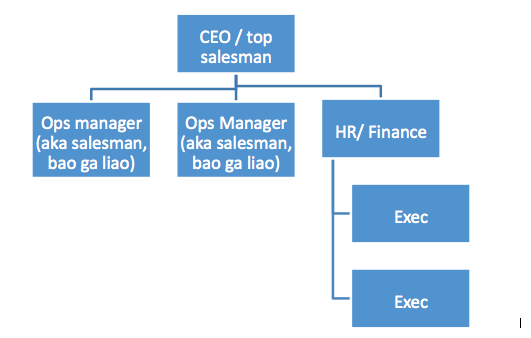Unraveling the mystery world of Singapore's security officers
By See Wee HengOn the surface, Singapore looks like a buzzing global city where everyone is coping well and has a roof over their heads. Singapore has a heavy chunk of its population in the middle-income category.
Although Singaporeans in general complain about the rising cost of living, many are still out there enjoying pricey dining at restaurants, scooting out on holiday trips, buying cars and properties etc.
Many Singaporeans do not know or care much about the 150,000 Singaporean and Permanent Resident full time employees who earned below the S$1,000-line in 2012. The plight of these groups of low wage workers was further highlighted when National Wage Council (NWC) announcement of a minimum monthly increment of S$60 guideline was met with protests from employers and their clients.
Income growth for this group of low wage workers has substantially lagged behind the rest of the nation's workforce and being at the lowest rung of society, and they are unable to effectively fend for themselves when it comes to wage increment and other employment benefits.
The Union's focus, until recently, was on the cleaning sector which used to be the lowest paid industry. But with the recent introduction of Progressive Wage Model (PWM) as a licensing requirement for cleaning companies, cleaners are now offered higher remunerations based on their productivity and contribution to their company.
Furthermore, if the National Wages Council link to Progressive Wage Model is approved, cleaners can start enjoying a substantially higher starting pay of $1,000.
With these pay increments for cleaners, now security officers are paid lower than cleaners. It is of no surprise that this $1 billion dollar security industry is now NTUC's next target for Progressive Wage Model implementation.
However in my last article on Attaining A Better Life For Our Low Wage Workers, NTUC’s push for higher pay for security officers was shot down by a president of a security association here, Mr T. Mogan.
His explanation was that security companies would be unable to manage the pay increase and with a tinge of arrogance, declared that “It’s for them (NTUC) to support our idea, not for us to agree to their way of doing things.”
While it is not unheard of that employers are resistant to wage increases, is there more to the security industry that meets the eye? Curious, I spoke to a few friends within the security industry and got a glimpse of the sorry state of this industry, and the security officers who were denied the pay increase.
What's The Problem?
The security market in Singapore suffers from chronic structural problems. The dog-eat-dog nature of the industry heightens competition among security companies not only for jobs, but staff.
Combined, they form a formidable barrier that prevents Security Officers from experiencing sufficient on-the-job job satisfaction, career development and progression opportunities, reasonable remunerations and public appreciation for their dedicated services.
1. Low Barriers To Entry
The security industry is a sector that poses an extremely low barrier to entry. With only $50,000 paid up capital required, this is a natural business for retirees or ex-staff from Singapore Armed Forces or Singapore Police Force to go to. Hence this explains why there are around 275 security agencies operating on our little island.
There is however one aspect of the business that many of these new business owners are not prepared to cater for - late payment from clients. To stay competitive, tender documents often indulge customers with flexible payment terms as long as 6 months. Customers may also default on payment. As a result, security agency owners often face the problem of paying salaries on time.
2. Regulatory Framework Results In Irresponsible Behavior
The current licensing regulatory framework allows each Security Officer (SO) to be engaged by 2 security agencies at the same time.
Without a clear sense of belonging to any one company, Security Officers are less likely to commit their loyalty to one single agency as there will be a “backup” agency. Those who are purely motivated by pay may decide to skip the first job they have agreed to (simply by not turning up) if the second agency subsequently offers them a job which pays better.
Security Officers are not worried about losing their jobs with their current employers as they believe they can simply find security jobs from other agencies in a heartbeat.
This has fostered a rather mercantile attitude in the market where highest bidder (i.e. job) attracts Security Officers, leading to a percentage of no-shows that can be as high as 50% (i.e. only 5 of 10 designated Security Officers show up on first day of work), causing security agencies to face heavy liquidated damages by client for every absent Security Officer.
3. Overhyped Supply That’s Not Quenching Actual Demand
There is a mismatch of supply and demand here. There are supposed to be 60,000 licensed Security Officers, but only 35,000 to 40,000 Security Officers available for hire. Many people are just registering themselves for an Security Officer license as a last resort in the event of unemployment or an avenue for part time work.
With an estimated demand of 45,000 to 50,000 Security Officers in the market, the security industry suffers a serious shortage particularly during festive periods. When Security Officers flock to biggest paymaster, tables get turned where agencies work for them instead of the other way round.
4. Low Wages Leading to Job Hopping
Occasions when Security Officers may not turn up for work when another agency can pay more is not uncommon. It has become so rampant that such scenarios happen for as low as just an additional $5 dollars a day.
To illustrate the seriousness of the situation, one anonymous source shared, “If my agency calls up 10 Security Officers and 5 turn up, it’s like striking 4D. If one of these 5 Security Officers still remains after a week, I can strike TOTO!”
But look at the Security Officers’ perspective, with wages as low as $800 a month and mouths at home to feed, it is no surprise that they would choose a higher-paying job.
5. Property Owners with High Value Assets Insist on Dirt Cheap Security Contracts
Property owners often boast about their spanking new real estate assets but the status quo is to squeeze outsourced work contracts as cheap as possible, so how can security agencies pay Security Officers more?
6. Excessive Expectations
The double whammy comes when these same property owners expect lowly paid Security Officers to be innovative and perform their job well, sometimes even insisting Security Officers take on additional tasks such as cleaning and building concierge services when the cleaners and concierge go on leave.
Security Officers deserve more respect for their job than these ungracious building management and residents have been giving.
With wages that's only 10% higher than MacDonald's, and $200 less than cleaners, Security Officers who are unable to take the poor treatment from their customers just leave the industry all together.
7. Organizational Structure Of A Typical Security Agency Leads to Jack of All Trades and Master of None
Last but not least, the manpower strain in a typical security agency offers little staff management and retention efforts.
As shown in the organization chart below that generally represents the majority of security agencies, the Operations Manager has to juggle between bringing in the sales, preparing tenders, responding to customers queries and complaints (aka baogaliao man who does anything and everything). How would Ops Managers have the extra time and energy to take good care of the Security Officers reporting to them?
In Singapore, the industry norm is usually 1 Operations Manager to over 90 Security Officers. That should give you a good sense of the communications and recognition each Security Officer receives from their manager.
What is Life Like as A Security Officer?

1. Suffer Long and Odd Working Hours
Each Security Officer is expected to contribute 12 hours daily for a 6 days work week.
The main reason why so many Security Officers leave the industry is due to the long working hours, not to mention night shifts.
2. Older & Lower Educated
Being a Security Officer is probably not one of their dream jobs, but the majority of Security Officers are above 50 years old with low education level between Primary 6 to Secondary 2.
With limited career options, they cannot be choosers and have not much opportunity to study further and work their way up the career ladder, if one even exists in the agencies in the first place.
3. Cash is King
Security Officers usually prefer daily wages over monthly wages as for the latter, Security Officers have to contribute 20% of their remuneration to CPF hence the actual take home pay (and disposable income) is lesser.
Overtime is definitely a preferred option. With a basic pay of $800 a month, overtime can increase an Security Officers pay to $1,700. Moreover, quite a number of Security Officers are Malaysians and want to work 4 days non-stop so they can rest in Malaysia for 3 days before coming back to work again.
4. Overworked and Under-appreciated
They have little rest between shifts, their customers or residents treat them badly and load them with excessive expectations that are way beyond their usual scope of duties.
Not to mention that they receive minimal appreciation from their overloaded Operations Manager who may not even realize their presence till they make a blunder at work or get complaints by customers.
5. They Deserve More Respect
Singapore society as a whole offers little regard for Security Officers. There is sadly not much respect towards the profession to the extent that many of these Security Officers are shunned by their own children too.
After the Progressive Wage Model was implemented for cleaners, with cleaners earning more (than Security Officers) with career progressions to look forward to, I hope focus can now move to the private security sector.
Although the security industry is more complex than cleaning industry, it is important that the security agency owners work with the government and NTUC to roll out the Progressive Wage Model (so low wage security officers can be paid better and look forward to career growth).
It is unfair to deny security officers better pay and better jobs with such a light dismissal and emotive objections, like what Mr T. Mogan gave.
Can You Feel For These Security Officers?
Now that you have gotten a grim glimpse of their much hidden world, it helps to just give a smile of appreciation the next time you walk past the Security Officer in your building.
Although it may take a while for the security companies to realise that suppressing wages is not in their long term interests when other industries are benefiting from NTUC’s Progressive Wage Model, but your little gesture of appreciation will offer our Security Officers some solace for the time being.


























 Advertise
Advertise









